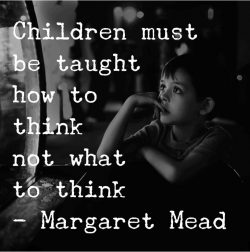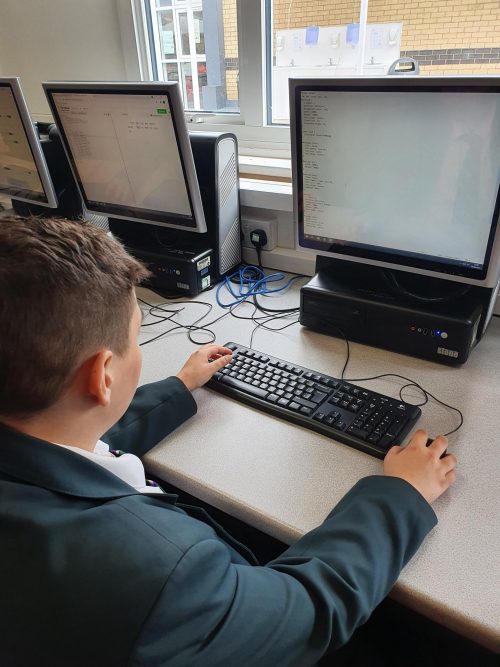The Importance of Learning a “New Language”
This isn’t about learning French, Spanish, Mandarin or even Sanskrit. Have you heard of Python, HTML, CSS, Java or C++? A bit different, huh? The “New Language” is known as coding...
Filter by Category
Filter by Author


























































































































































































This isn’t about learning French, Spanish, Mandarin or even Sanskrit. Have you heard of Python, HTML, CSS, Java or C++? A bit different, huh? The “New Language” is known as coding...
Posted by Amita Vaghela

Posted by James Felix

Posted by Sara Ash - Deputy Headteacher

Posted by Danielle Bowe

The Tempest is one of Shakespeare’s most famous comedies and one of his shortest plays. Written around 1610–11, it is believed to have been his last play before retirement. Set on...
Posted by Natalie Stanton

Hi everyone Yet again we are now in a new lockdown with most student’s home learning once more. Let us remind ourselves of the amazing work our anti bullying ambassadors have done...
Posted by Helen Mateides

Drama has its challenges for remote learning. A subject that traditionally relies on extensive group work and plenty of close interaction was always going to provide us with...
Posted by Greg Knowles

Good afternoon Mr Turner and All the Teachers and Associate Staff at BMS. I just wanted to write this email to thank everyone at BMS for all the amazing work they are doing. I...
Posted by Jeremy Turner

As a school we have always been outward facing and willing to share best practice with schools across the country for the benefit of helping all children Aspire to Achieve and...
Posted by Jeremy Turner

It is always great to hear how our Humanities and Social Science students are exceling with their remote learning. Jessica Levitan, a Yr 8 student, has been asked by Head of...
Posted by Adam Lyley
This isn’t about learning French, Spanish, Mandarin or even Sanskrit. Have you heard of Python, HTML, CSS, Java or C++? A bit different, huh? The “New Language” is known as coding or much better known as programming.
Learning code is like learning any language – or to be more accurate, a “family” of languages. It’s not an exaggeration that coding is the DNA of the digital world. This is why coders have such an important position in the shaping of the modern age, and the future.
 So, what is programming?
So, what is programming?
Coding is a set of instructions that tells the computer what to do. Computers have no free will, after all, so without explicit instruction, they’re just sophisticated hunks of metal.
Without coding, computers would literally do nothing. They would be completely useless. Coding is used in your everyday life: Play a video game, send an email., search for something on Google, request an Uber, buy something on Amazon or even watch a movie on Netflix.
Why is learning to programme important?
Coding develops structured and creative thinking. When programmers are given a problem to solve, they don’t just start to code right away. Problems are not solved that way. When you see a problem, you need to break it down into workable pieces and then get on it. Do non-programmers ever approach a problem like this? Rare! When you start learning to program, you develop the habit of working your way out in a very structured format. You gradually program your brain to break every problem down to bits and understand better. You start thinking logically, and this gives rise to more creative solutions you’ve ever given.
Learning to program teaches you persistence When you learn computer programming, you start seeing problems in the light of solutions. Your brain starts functioning like that. When you encounter a problem after learning to program, you start envisioning the possible ways to solve it. You may even foresee some good results out of it. However hard the problem might seem, you become determined to act on it anyhow. You transform yourself into a solution-driven individual.
Programmers have to think logically about a problem. Once you start learning how to code, you stop giving up on other difficult situations in your day-to-day life as well. You start trying over and over again. You become patient because you know there is always a solution. It just needs some more effort, just like it happens when you create a program, runs it, and debug it several times to reach the perfect solution.
Computer programming is powerful. Even if you know just the basics of programming, you can imagine a lot of solutions and can work to solve your (and maybe the world’s) problems. Learn computer programming to feel the confidence of having this robust tool at your disposal. It’s amazing!
Computer programming gives kids a challenge and helps them develop resilience When children learn to code, they develop the ability to bounce back after failure. They learn that failure isn’t necessarily a bad thing, and in fact, it can often be something positive because it serves as a learning opportunity. This is one of the most important reasons why kids should code, as they will learn quickly that ‘debugging’ your code is half the fun.
When you fail and try again you can learn from your mistakes. Coding gives children the ability to try and try again until they succeed and produce the result they are looking for.
Start with an Hour of Code
One of the easiest ways to get a taste of programming basics for kids is with the fun and FREE hour of code activities available online. These activities are designed to take only an hour and can give kids and parents a chance to understand the importance of learning to code. We have an entire list of our favorite hour of code activities here.




Computer science is a very large subject with lots of applications. Computer scientists design new software, solve computing problems and develop different ways to use technology....

The Imperial College London is currently offering some great, engaging secondary school programmes that could help you test your knowledge, try out professional equipment and...